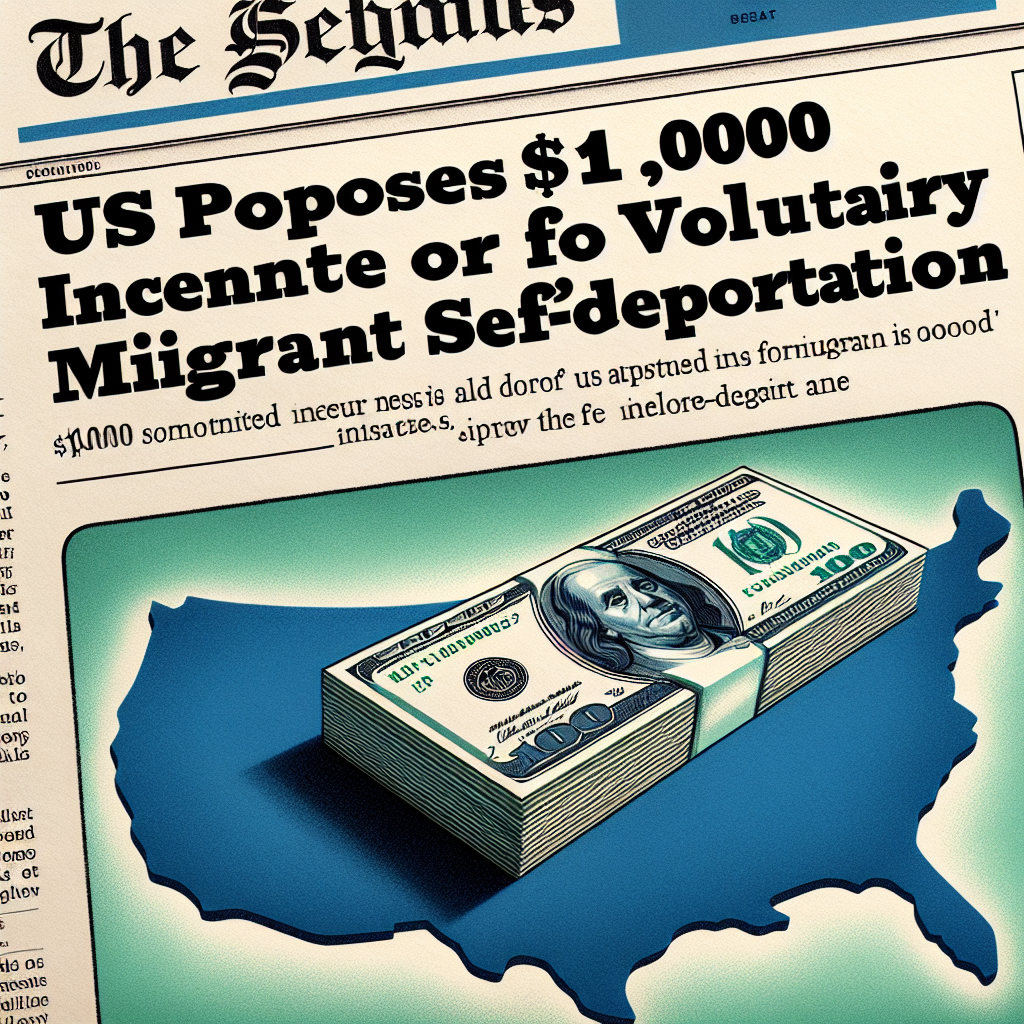US Proposes $1,000 Incentive for Voluntary Migrant Self-Deportation
US Proposes $1,000 Incentive for Voluntary Migrant Self-Deportation
Introduction
The United States government has introduced a controversial proposal aimed at addressing immigration challenges by offering financial incentives for voluntary self-deportation. This initiative seeks to encourage undocumented migrants to leave the country willingly in exchange for a monetary reward.
Key Details of the Proposal
- Incentive Amount: Eligible migrants would receive $1,000 for voluntarily returning to their home countries.
- Eligibility Criteria: The program targets undocumented migrants who have not committed serious crimes and are willing to depart without coercion.
- Implementation: The proposal is still in the planning stages, with details on execution and funding yet to be finalized.
Objectives and Rationale
The primary goal of this initiative is to reduce the number of undocumented migrants in the United States while avoiding the costs and complexities associated with forced deportations. By offering a financial incentive, the government hopes to encourage voluntary compliance and ease the burden on immigration enforcement agencies.
Public and Political Reactions
- Support: Proponents argue that the program could lead to a more humane and cost-effective approach to immigration control.
- Criticism: Critics question the ethical implications and potential effectiveness of paying individuals to leave, suggesting it may not address the root causes of migration.
- Political Debate: The proposal has sparked a heated debate among lawmakers, with opinions divided along party lines.
Conclusion
The US government’s proposal to offer a $1,000 incentive for voluntary migrant self-deportation represents a novel approach to immigration management. While it aims to reduce the undocumented population in a cost-effective manner, it has also ignited significant debate regarding its ethical and practical implications. As discussions continue, the proposal’s future remains uncertain, with its potential impact on immigration policy yet to be determined.












